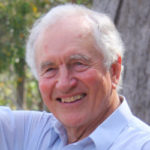STUART REES, Julian Assange, Establishment Interests and the US Culture of Revenge
Apr 18, 2019Julian Assange faces extradition to the United States to face a grand jury’s secretly concocted charge of ‘computer intrusion’ to obtain and reveal classified information. Reaction to Assange’ arrest shows powerful people protecting establishment interests, which, over centuries, have involved lying, deceit, corruption, wars and other forms of violence.
‘Establishment’ refers to US, UK and Australian intelligence operatives, politicians plus journalists who say that Assange does not belong in their professional community.
Self important UK and US politicians have condemned Assange. In Britain, Tory party elite have been out in force. Foreign Minister Jeremy Hunt’s cliches about Assange not being a hero have been marinated in the familiar claim that British justice is second to none. Yet before any trial, the judge, Justice Snow, before whom Assange is to appear, had played to the media gallery by defining the defendant as a self interested narcissist.
As an alternative to accepting Hunt’s and Snow’s views, it’s reasonable to ask whether privileged individuals ever comprehend the values of those who expose the brutality of US foreign policy , whether they perceive the gutless collusion of governments who do not question US violence?
In common with Hunt, former US Presidential candidate Hillary Clinton utters her latest hypocrisy, ‘The bottom line is that he (Assange) has to answer for what he has done, at least as it has been charged.’ Clinton was an enthusiast for the invasion of Iraq, the destruction of a country, the slaughter of hundreds of thousands of Iraqis, the development of rendition and the spawning of Isis.
A former member of Clinton’s ‘inner circle of advisers’, Yale graduate Neer Tander writes, without evidence, ‘Assange was the agent of a pro fascist state Russia.’ Deputy Labor leader Tanya Plibersek tweeted that she liked Tander’s claim. As long as Tander represents establishment interests, she can make any claim if it reinforces the not to be questioned orthodoxy of a so called freedom loving democracy.
In the same vein, the pompous US Secretary of State Mike Pompeo plays as the brave defender of the USA, his comments about Assange a rewinding of video games: good democracy v. rogue regimes, the just against the unjust. Pompeo pitches himself on one side, Assange on the other. Years ago, says Pompeo, Assange would have been on the side of fascists and communists. Labelling complete. Pompeo version of truth must prevail.
In reaction to Assange’ arrest, Australian politicians have sat on a fence. In his comments on the prospect of more fence sitting, barrister Geoffrey Robertson has pleaded with the Australian government to show gumption. That is a reference to a product which was used to clean sinks, basins and drains. Robertson was asking for a different kind of sink cleaning, for evidence of vitality, spirit and verve from an Australian government in defence of one of their citizens.
Prime Minister Morrison and Labor leader Shorten say that Assange will receive the usual consular assistance, presumably of the kind which protected David Hicks and Mamdouh Habib in their years of torture and incarceration in Guantanamo?
Foreign Minister Marise Payne says ‘We are not in a position to interfere in his (Assange) legal matters in the UK or elsewhere.’ History teaches that is not the case. Political influence and community pressure freed the Bahrein footballer Hakeem Al Araibi, and if an Australian was in trouble in China or Russia, there would be a sudden rush of political courage to protest on such a citizen’s behalf.
In common with politicians, professional journalists have been reluctant to support Assange. In the Sydney Morning Herald of April 13, the respectable Peter Greste wrote,’Assange is no journalist and his arrest isn’t about press freedom.’
Although Greste insisted that as a former prisoner in an Egyptian jail, he had sympathy for Assange, he showed neither compassion nor consideration of the value of the Assange/Wikileaks revelations which had provided stories and income for major newspapers. Instead, Greste was preoccupied with saying that he and his colleagues were the real journalists, even though, in 2011 Assange received a Walkley award for his ‘Most Outstanding Contribution to Journalism.’
Greste’s washing his hands of Assange looks like professional jealousy, part of a trade demarcation dispute: respectable journalists v. unworthy ones. The worthies are said to be responsible because they analyse material. With that self image in mind, Greste wrote that by dumping un-examined cables on his website, Assange put lives at risk but this worthy journalist appears not to have examined the cables to which the referred.
In a forthcoming book, ‘What Uncle Sam Wants’, Professor Clinton Fernandes has examined the contents and consequences of the release of those cables. He concludes that Assange and Wikileaks did not identify people and put no-one’s life at risk. In the same analysis, Fernandes shows that in the cables which revealed US diplomats communication with their equivalents in other countries, a main concern was to promote the interests of US corporations so that they could dominate world economies.
In answer to Greste and others’ beliefs that they are the real journalists, Bernard Keane the political editor of Crikey, says, ‘If you don’t think Wikileaks is a publisher or you think Assange should be rendered to the US, then you think that what they revealed – war crimes, indiscriminate murder, systematic corruption – should have stayed secret.’
The arrest of Assange and the renewed imprisonment of Chelsea Manning represent a massive political issue not a legal one. These events show the violence, masquerading as justice, which is used to protect a US culture of revenge. That culture has to be exposed and challenged. If Australian politicians are to rise to that challenge, it looks as though they will need to swallow large doses of gumption.
Stuart Rees, OAM, is Professor Emeritus at the University of Sydney and recipient of the Jerusalem (Al Quds) Peace Prize.




